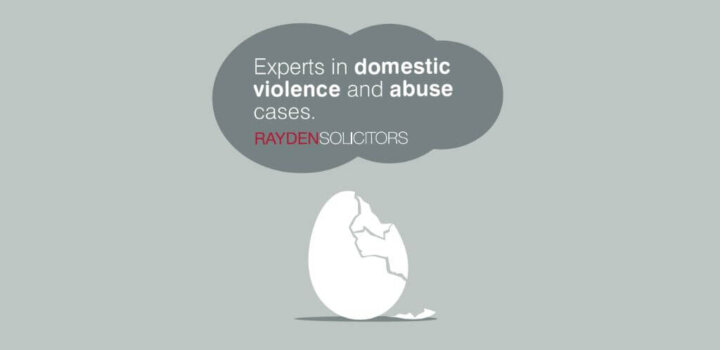Introduction
If a parent living in France wishes to relocate to England and Wales (referred to as England hereafter for simplicity) with his or her child, for example, following a relationship breakdown or a new job opportunity, they must either find an agreement with the parent left behind, or lodge an application before the French Family Court.
Indeed, a child living in France is deemed a “habitual resident” in France, meaning that French courts will have jurisdiction over their custody and relocation, should the parents fail to agree on the principle and the terms of said relocation to England. These cross-border family matters fall under the scope of Anglo-French family law, which governs the legal complexities of parental responsibility, relocation, and custody rights between the two countries.
What does the law say?
Article 373-2 of the French Civil Code (FCC) provides that, upon separation, both parents must maintain personal relations with their child and respect those of the other parent. Their separation has no influence on the fact that parental responsibility is, by principle, shared by both parents. As such, any important decision in the child’s life must be taken jointly. Therefore, if one of the parent wishes to relocate with the child, the other parent must be notified and agree to such move.
Relocate without the other parent’s consent or without a Family Court Judgement authorizing the relocation can be considered as a child abduction which is a criminal offense. It can also trigger the application of the Hague convention of 1980 on the Civils aspects of child abduction – that is applicable between France and England and Wales – which could give grounds to the left behind parents to obtain the immediate return of the child in France if the conditions are met.
The legal considerations
The French Supreme Court regularly reminds that the child’s best interest is the most important principle in all proceedings relating to children (Article 3-1, UN Convention on the Rights of the Child 1989, and Article 371-1 et seq. FCC).
The courts, always bearing in mind the best interest of the child (and not the one of the parents which to relocate) will also consider the following factors when ruling on a child’s relocation:
- The reasons of such relocation and its impact of the child’s life (especially the impact of the move on the relationship with the other parents),
- Stability: the parent’s ability to provide for the child’s everyday care;
- Education: the child’s future school;
- Social environment: preserving the child’s existing links with the current and new places of residence (nationality, language, family members, previous place of residence, etc.)
- Quality of communication between the parents;
- Ability of the relocating parent to preserve the connection with the other parents (for example, facilitating communications, helping with the commute between France and England)
- Travel: the distance between France and England (a commute between two big cities would allow contacts with the left behind parents more easily for example);
The judge will also take into account the child’s wishes and feelings, if they are capable of discernment (Articles 388-1 et seq. FCC).
Is there a genuine reason for wanting to relocate with the children?
Relocation disputes often arise following the parents’ separation. Parents wishing to relocate must provide a legitimate excuse to the court, and such reason should be considered to be in the child’s best interest. This will often include a relocation to the parent’s country of origin with the child, professional reasons, to be close to his/her family. Wishing to be closer to their new partner is often not sufficient to obtain a relocation.
In practice, when a shared/alternate residence order is in place between the parents, relocation is more rarely granted (CA Versailles, 16 July 2009, No 09/04620).
Do you have a well thought out proposal for the practical arrangements?
In the past decade, the French Supreme Court has strengthened its control on the conditions of relocation in light of the child’s best interests. Consequently, relocation has become harder to obtain from lower courts.
Contrary to some other countries, relocation proceedings do not differ from proceedings in relation to other custody matters. As such, they can be heard on an emergency basis. Furthermore, these proceedings rarely trigger extensive and in depth social/welfare reports prior to granting a relocation.
The parent wishing to relocate may, however, present the judge with different elements to guide their decision-making process:
- An overview of the child’s future environment: accommodation, school and extra-curricular options, and an extensive support system for the child;
- The child’s effectiveness in maintaining contact with the left behind parent and their family: options for communication and spending time with the other parent (calls and travels options including frequency, duration, location and cost of the child’s visits).
Finally, the court will also have regard to whether the new jurisdiction will enforce and/or domesticate the French order without varying it.
What is the detriment to the other parent and their relationship with the children if the application is successful?
Under Article 373-2 FCC, the parents’ separation has no influence on the rules of devolution of the exercise of parental authority. Both parents must maintain personal relations with the child and respect the bonds of the latter with the child. In that regard, there should be no impact on the parent’s relationship.
French judges are proactive in ensuring that the relocation does not put a strain on this relationship, which is why, in France, both parents must agree on relocation. A parent who wishes to relocate with the child must inform the other parent in advance and in due time, especially if the proposed relocation will affect the exercise of parental responsibility, namely access and/or residency (Article 373-2, 3rd para, FCC) so that the matter is taken to Court in case of a disagreement between the parents.
Should a disagreement arise, the parent seeking to relocate with the child must file custody proceedings at the Family Court to ask for the authorisation to relocate with the child and ask the judge to set the contact rights of the other parents.
The different process options
Alternate dispute resolution
Alternate dispute resolution (ADR) methods are often used to resolve relocation disputes before French courts. These methods are preferred over litigation as French courts are quite reluctant to authorise the relocation of children when one of the parents is opposing it.
Recently, French procedural law has made this negotiation phase mandatory before lodging an application with the court (Articles 56 and 58 of the French Civil Procedure Code). However, an ADR process is not required in cases of emergency or if legitimate reasons are given.
Court applications
Should negotiations fail, a petition for relocation may be lodged by either parent wishing to relocate the child, ideally 3-4 months prior to the relocation.
Conclusion
Should a parent wish to relocate with their child to England, they must obtain the other parent’s consent or an authorization from the French Family judge. It is advised to seek legal advice early on to obtain a speedy relocation.
















